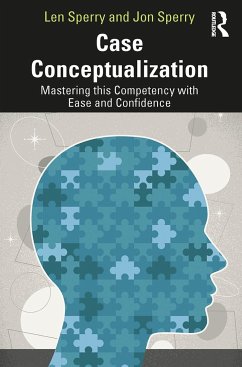
The Science of Cognitive Behavioral Therapy

PAYBACK Punkte
32 °P sammeln!
The Science of Cognitive Behavioral Therapy describes the scientific approach of CBT, reviews the efficacy and validity of the CBT model, and exemplifies important differences and commonalities of CBT approaches.The overarching principle of CBT interventions is that cognitions causally influence emotional experiences and behaviors. The book reviews recent mediation studies, experimental studies, and neuroimaging studies in affective neuroscience that support the basic model of CBT, as well as those that clarify the mechanisms of treatment change.Additionally, the book explains the interplay of...
The Science of Cognitive Behavioral Therapy describes the scientific approach of CBT, reviews the efficacy and validity of the CBT model, and exemplifies important differences and commonalities of CBT approaches.
The overarching principle of CBT interventions is that cognitions causally influence emotional experiences and behaviors. The book reviews recent mediation studies, experimental studies, and neuroimaging studies in affective neuroscience that support the basic model of CBT, as well as those that clarify the mechanisms of treatment change.
Additionally, the book explains the interplay of cognition and emotion in CBT, specifies the treatment goals of CBT, discusses the relationship of cognitive models with medical models and associated diagnostic systems, and provides concrete illustrations of important general and disorder-specific considerations of CBT.
The overarching principle of CBT interventions is that cognitions causally influence emotional experiences and behaviors. The book reviews recent mediation studies, experimental studies, and neuroimaging studies in affective neuroscience that support the basic model of CBT, as well as those that clarify the mechanisms of treatment change.
Additionally, the book explains the interplay of cognition and emotion in CBT, specifies the treatment goals of CBT, discusses the relationship of cognitive models with medical models and associated diagnostic systems, and provides concrete illustrations of important general and disorder-specific considerations of CBT.













